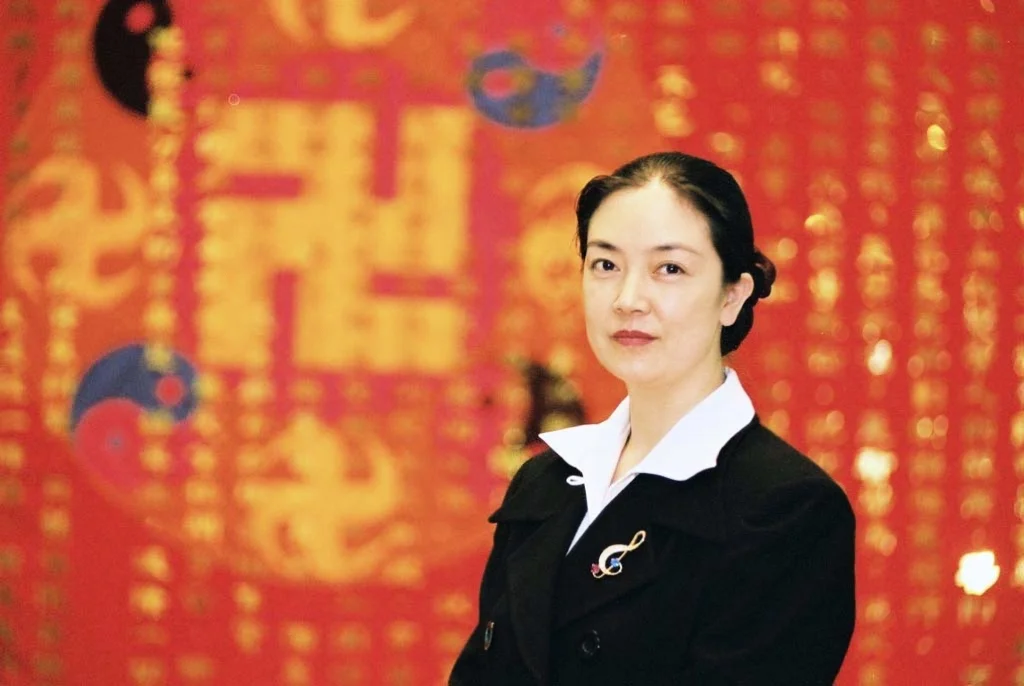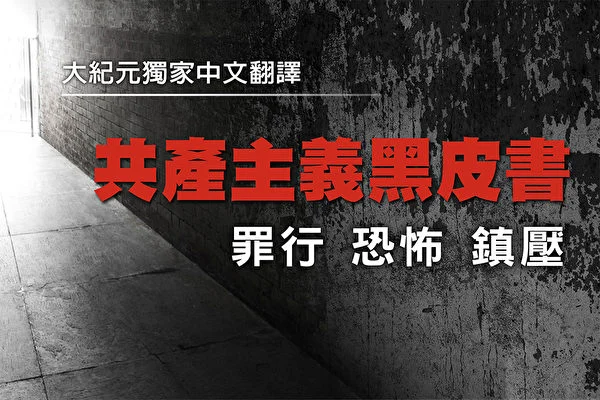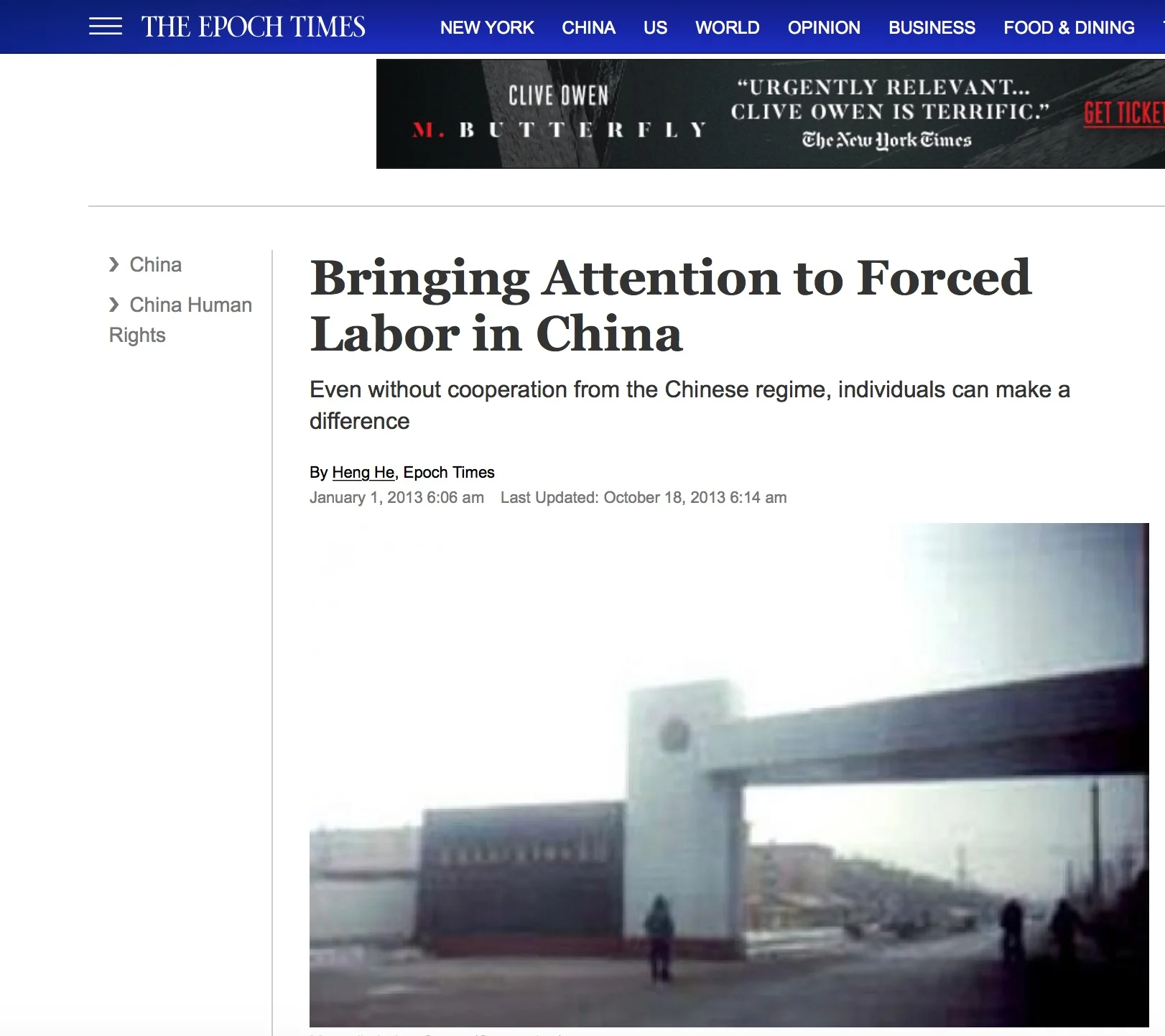Out of China to Outer Melbourne [excerpt]
Australian Financial Review | June 22, 2002 | By Rowan Callick
Page 10
[...]
Zeng's mother was a judge, her father a lawyer. She gained a Master of Science from China's top university, ''Beida'' or Beijing University, married and had a daughter. But her life changed utterly and unexpectedly when, still recovering from the hepatitis C she contracted from a blood transfusion received after giving birth four years earlier, her sister sent her some books. In these books, Mr. Li Hongzhi outlined the principles of a form of qi gong which he called Falun Gong.
[...] Zeng read Li's books, and was convinced that they answered her speculative thoughts on the gap between faith and science, as well as providing fresh hope for overcoming her persisting health troubles. In a park near where she was living, she found a group practicing this form of qi gong and joined in.
Soon after, Falun Gong was banned in the most far-reaching [suppression] China has experienced in the 25 years since the cultural revolution ended. Zeng sought to explain to her parents-in-law, in a letter, why she refused to turn her back on Falun Gong despite the ban. The letter was relayed by email, which the state's mammoth security apparatus deploying scores of thousands of internet monitors intercepted, alerted by the trigger characters for Falun Gong.
A succession of arrests followed, culminating in a year's harsh treatment in a labor camp all without formal charge or trial and then Zeng's escape into involuntary exile and heartbreaking separation from her husband and daughter.
Page two of "Out of China to Outer Melbourne" on "Autralian Financial Review" By Rowan Callick
[...]
After gaining her Master of Science she gained a highly prestigious job in the research department of the State Council, China's Cabinet Office, for which she had to be a party member.
She had met and married her husband when they were graduate students together. He too was a research scientist, but shifted like many of China's more ambitious young people to the business world.
After problems while giving birth, Zeng ''lost health and hope''. Not only did [Falun Gong] exercises help her physically, she says, but the philosophy of the then rising qi gong master Li Hongzhi gave answers to ''questions I formed at university about the meaning of human life, the questions philosophers have always asked, such as 'Who am I?'''
Zeng, like her husband, moved to the private sector, working as a consultant and researcher chiefly for listed company clients. A fellow practitioner told her that Falun Gong followers had been arrested after protesting about a magazine article attacking the movement written by He Zuo Xiu, the brother-in-law of Luo Gan, the Public Security Bureau chief.
Zeng joined others in appealing against the arrests at Zhongnanhai, the compound next to Beijing's Forbidden City, where the top cadres live and work. About 10,000 people meditated and practiced qi gong exercises in silence around Zhongnanhai. This was the turning point, after which the [Jiang] government believed that Falun Gong was more than an association; [...] and therefore a rival to the party. Zeng saw charismatic Premier Zhu Rongji come out to receive the group's appeal and invite representatives inside for a discussion.
''I thought everything had settled down.'' Then she was called again and told practitioners had been arrested in almost every Chinese province. She returned to Zhongnanhai. ''This time was different. The police cars were all waiting for us.'' She was arrested, her fingerprints and details taken. ''From then on, I was blacklisted.''
Zeng persisted. She tried to attend a court hearing that sentenced Falun Gong followers, one for 18 years, and was again arrested as she approached the building, as was her husband who was and remains a non-practitioner. She took her young daughter for a holiday, home to Sichuan province, and was called there by Beijing police asking questions about fellow practitioners. She refused to reveal where a Falun Gong meeting had taken place.
When she arrived back in Beijing she was arrested again, and held for 28 days. In the final couple of days, they also brought in her husband, and told her they knew the seven-year-old daughter was now at home alone. If Zeng told them what they wanted, both could be let out to care for her. Her husband gave them what information he knew, from driving with his wife. They went home. But a few days later, the police came for her at 2am.
She had argued with her parents-in-law, who had come to the capital because of the growing trouble. They had beseeched her to quit Falun Gong as the government's campaign kept intensifying. Exhausted by argument, she had gone to visit Falun Gong friends, where she wrote a letter to the parents-in-law to explain her position more clearly. One of her friends sent the letter by e-mail, and its interception led to her final arrest.
She was sent to a ''dispatch center'' for 40 days, then to a lao jiao (re-education through labour) camp for a year. This was an administrative sentence. She was never charged with an offence, and did not go to a court. Her husband was not told where she was taken. He managed to see her only after four months, once she had signed a letter saying she would give up Falun Gong. At the dispatch center, she and other Falun Gong prisoners had been forced to stand for 16 hours at a time, looking down at their feet, while reciting the center's regulations.
Rowan Callick from the Australian Financial Review giving a speech at Jennifer's book launch in Melbourne, Australia in May, 2005.
Zeng knew she had a right to appeal, and asked for pen and paper to register it. The supervisor's response was to tell her to squat with her hands on her head in burning sun for a day. ''I can hardly describe the agony.'' She says that when she still insisted on appealing, she was beaten with an electric-shock baton until unconscious, dragged on the floor and kicked.
At the labor camp they rose at 5.30am, and knitted jumpers and made toys, medical instruments and promotional rabbits for Nestle. When not working, they had to listen to lectures, watch videotapes and read articles [defaming] Falun Gong.
''We were deprived of sleep until we had signed a letter denouncing Falun Gong.'' Zeng gave in. The longest resistance without sleep, she says, lasted 15 days. ''The camp's quota required 95 per cent reform. The guards would lose their jobs or pay if they failed to reach it.''
[...] Her daughter was brought in to see her twice. ''It was very difficult.'' After Zeng's release, her daughter gave her a book [defaming Falun Gong] that her teacher had supplied. ''The teachers were told about me by the police. My daughter said in despair, 'I know you're a good person, mum, but the government says Falun Gong practitioners are bad people.' She was so scared and confused. That was the worst of it all.''
Fleeing constant surveillance in Beijing, she went to see her parents in Sichuan, then further west. It would be impossible to return to a normal life in China, she realized reluctantly and bitterly. ''Unlike many of my classmates at university, I never thought of leaving my own country. I really love China, its people and its culture.'' But through means she cannot disclose she obtained an exit visa, and managed to come to Australia
where she knew no-one and took the name Jennifer. She is applying for refugee status, and desperately hoping that if she gains it, her husband and daughter will be able to join her.
She communicates with her relatives sporadically. ''There's no safe way to communicate.'' The phones are tapped, she says, and everyone is nervous about saying what they feel. ''I never imagined my life would take this sort of turn.''
[...] Zeng Zheng is still writing her book, to be titled Witnessing History.
Jennifer invited to the prestigious Melbourne Writers Festival in 2005 as a special guest and speaker to talk about her newly published book "Witnessing History: one woman's fight for freedom and Falun Gong."
![Out of China to Outer Melbourne [excerpt]](https://images.squarespace-cdn.com/content/v1/59c59a0ef09ca4eb6e35b59f/1517146865867-CWS34MGOB5IN3T8V0TLS/SANY0022+copy.jpg)







